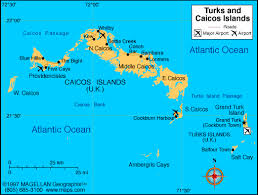By Hayden Boyce
Editor-in-Chief
Four former Chief Ministers, 16 first-timers, six women and 14 men, five lawyers, two taxi drivers, a doctor, a certified accountant and several business persons, are among those who have officially been chosen to contest what is expected to be a keenly-contested and extremely close general elections in the Turks and Caicos Islands on November 9th 2012.
The two main political parties, the Progressive National Party (PNP) and the People’s Democratic Movement (PDM) have both finalised their lists of candidates who have been actively campaigning to mixed responses from the general public.
The four former Chief Ministers current PDM leader Oswald Skippings and Derek Taylor who also served that party, and Washington Misick and Norman Saunders who were both PNP Chief Ministers.
The PNP has eight first-timers including its leader Dr. Rufus Ewing (who is running At-Large), two former general secretaries Donhue Gardiner who is running in the newly-created North and Middle Caicos constituency, and attorney-at-law Akeirra Misick who is contesting the new Leeward seat.
The other PNP new comers are mini-mart owner George Lightbourne who is running in Grand Turk North, businessman Rex Swann in Grand Turk South and Salt Cay, former bank manger and engineer Portia Stubbs-Smith in The Bight, taxi driver Adrian Williams in Blue Hills, rental car owner Clay Ewing in Five Cays.
The eight PDM first-timers are At-large candidate, businesswoman Josephine Connolly, construction worker Derek Rolle who is running in Grand Turk North, Government worker Edwin Astwood in Grand Turk South, chartered accountant Edith Cox in South Caicos, customs officer Ezra Taylor in Leeward, taxi diver Sonny Forbes in The Bight, businessman Oral Selver in Cheshire Hall/Richmond and oil company executive Goldray Ewing (the brother of PNP leader Dr. Rufus Ewing) in Blue Hills.
The total voter population in the Turks and Caicos Islands of 6,690 has been divided into ten Electoral Districts.
Providenciales has more than half of the voter population of 4280 voters, while Grad Turk has 1620, Salt Cay 37, South Caicos 318, Middle Caicos 56, and North Caicos 146.
Since the last election in February 2007, there have been several shifts in population.
Blue Hills represents the largest area of population growth in Providenciales, with the voter population there growing from 882 in 2007 to 1,393 in 2012. This figure is less than the total Grand Turk voter population by only 227.
General elections in Turks and Caicos Islands tend to be very close.
In 2007, when they were 6,987 registered voters, of which 5,937 voted, the PNP won 13 seats and the PDM two, but an analysis of the results reveal that it was an exceptionally close race in many constituencies.
The breakdown is as follows (2007 election results):
• West Road – Samuel Been (PNP) 165 votes, William Harvey (PDM) 133 votes; nine rejected;
• Overback – Floyd Hall (PNP) 283 votes, Robert D’Arcuiel (PDM) 123 votes; eight rejected;
• North Backsalina– Arthur Robinson (PDM) 228 votes, Arthur Lightbourne (PNP) 214 votes; five rejected;
• South Backsalina – Floyd Seymour (PDM) 244 votes, Deveraux Malcolm (PNP) 207 votes; five rejected;
• South Caicos North – McAllister Hanchell (PNP) 197 votes, Noel Skippings (PDM) 84 votes; five rejected;
• South Caicos South – Norman Saunders (PNP) 156 votes, Carl Gardiner (PDM) 43 votes, one rejected;
• Middle Caicos – Jeffrey Hall (PNP) 126 votes, Wendy Been (PDM) 45 votes; two rejected;
• North Caicos East – Mike Misick (PNP) 271 votes, Ashwood Forbes (PDM) 82 votes; three rejected;
• North Caicos West – Royal Robinson (PNP) 162 votes, Clarence Selver (PDM) 85 votes, Prince Selver (Independent) 4 votes; one rejected;
• The Bight – Karen Delancey (PNP) 333 votes, Jestina Delancey (PDM) 237 votes, five rejected;
• Blue Hills – Greg Lightbourne (PNP) 373 votes, Delroy Williams (PDM) 342 votes; two rejected
• Five Cays – Lillian Boyce (PNP) 337 votes, Sean Astwood (PDM) 266 votes; 12 rejected;
• Cheshire Hall – Amanda Misick (PNP) 304 votes, Dwayne Taylor (PDM) 208 votes; 13 rejected;
• Richmond Hill – Wayne Garland (PNP) 230 votes, Glynes Robison (PDM) 132 votes; four rejected;
• Long Bay Hills – Galmo Williams (PNP) 200 votes, Finbar Grant (PDM) 119 votes; two rejected.
 In the 1999 Elections, which the PDM won, the results were as follows:
In the 1999 Elections, which the PDM won, the results were as follows:
• South Backsalina - Derek Taylor 231, Oswald Williams 154;
• North Backsalina – Oswald Skippings 272, Sean Malcolm 113, Robert Adams 8;
• West Road – Larry Coalbrooke202, Arabella Smith 134, Earl Fulford 3;
• Overback –Washington Misick 185, Deon Wilson 143, Lloyd Rodney 9;
• South Caicos North –Noel Skippings 144, Emily Saunders 134;
• South Caicos South – Norman Saunders 117, Dorothy Malcolm, 67, Alden Durham 78, Royalton Harvey 2;
• Middle Caicos – Jeffrey Hall 100, Sam Garvey 96, Hormel Harvey 10, Royal Robinson 9;
• North Caicos East – Ashwood Forbes 159, Mike Misick 155, Richard Missick 71, Prince Selver 3;
• North Caicos West – Clarence Selver 163, Royal Robinson 99;
• The Bight – Felix Delancey 153, Karen Delancey 124, Shirleen Stubbs 77;
• Blue Hills – Hilly Ewing 308, Albert Grant 196;
• Five Cays – Lillian Been 196, Carl Jolly 188 and Staven Rigby 6;
• Cheshire Hall – Cheryl Astwood Tull 263, Rhynie Williams 142 and Clifford Hamilton 36.